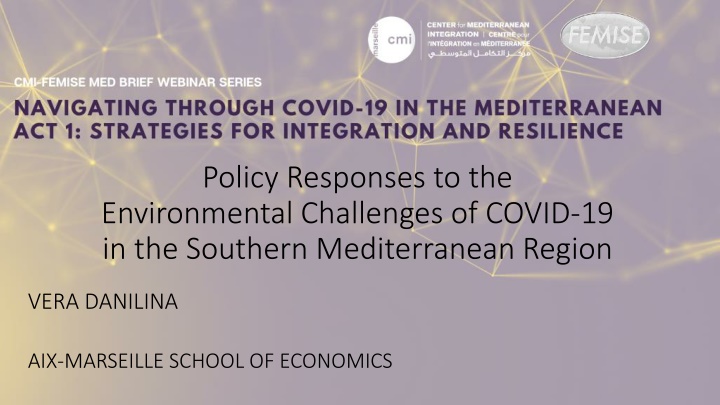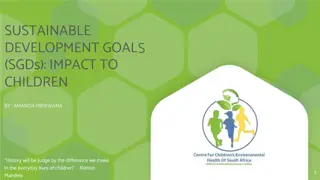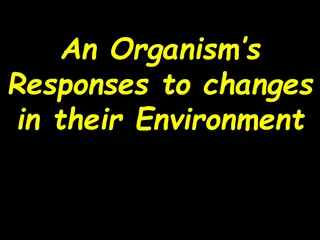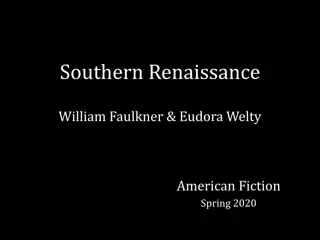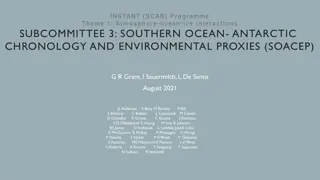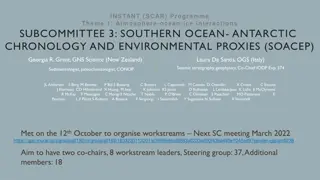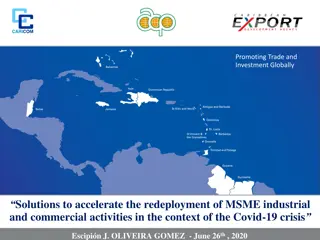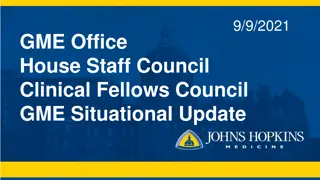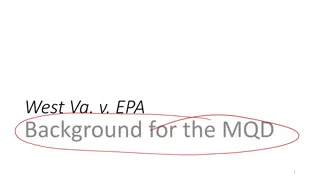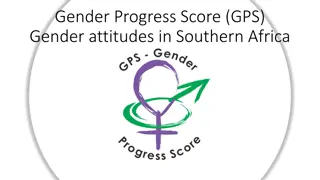Policy Responses to Environmental Challenges of COVID-19 in the Southern Mediterranean Region
This study delves into the policy responses addressing environmental challenges exacerbated by COVID-19 in the Southern Mediterranean region, focusing on potential strategies and implications for sustainable development.
Download Presentation

Please find below an Image/Link to download the presentation.
The content on the website is provided AS IS for your information and personal use only. It may not be sold, licensed, or shared on other websites without obtaining consent from the author.If you encounter any issues during the download, it is possible that the publisher has removed the file from their server.
You are allowed to download the files provided on this website for personal or commercial use, subject to the condition that they are used lawfully. All files are the property of their respective owners.
The content on the website is provided AS IS for your information and personal use only. It may not be sold, licensed, or shared on other websites without obtaining consent from the author.
E N D
Presentation Transcript
Policy Responses to the Environmental Challenges of COVID-19 in the Southern Mediterranean Region VERA DANILINA AIX-MARSEILLE SCHOOL OF ECONOMICS
Introduction The Southern Mediterranean countries (3.2% of the world population) have registered 2.19% of total world COVID-19 cases. Positive outcomes: emissions, noise and waste reduction. Negative outcomes: recession, income decline, deglobalisation, poverty increase. COVID-19 consequences across countries are different: Libya and Lebanon are the major victims of the pandemic; Egypt is expected to escape the recession.
Research Focus and Approach Research focus: The brief discloses several keystones of the optimal short- and medium-run environmental policy strategy in the region. Approach: SWOT/TOWS analysis. Strengths Weaknesses Opportunities Strengths reinforced by opportunities Weaknesses preventing to benefit Threats Strengths to fight threats Threats faced by weaknesses
Results STRENGTHS WEAKNESSES Economic potential Stable FDI inflow Steps towards sustainable development Salient ecological threats Lack of access to safe WASH Moderate environmental concerns Social-economic heterogeneity Environmental policy heterogeneity OPPORTUNITIES Reduction of some negative ecological impacts Crisis as a facilitator for innovations Growing role of the government Changes in consumers eco-mentality Implementation of new green technologies supported by the government and consumers COVID-19 can boost the eco-concerns to support the sustainable transformation. Refraining obstacle: existing socio-economic problems together with political instability THREATS Economic recession Public spending increase Growing role of the government Deglobalisation Micro-decisions and "going local" policies Stagnation and aggravation of existing socio- economic and environmental problems
Implications and Recommendations Support towards successful exporting companies and long-term investments Sound environmentally-friendly public policy (ex.: GPP and tax exemptions for green companies) SMEs and local value chains development Clear path to sustainable development goals The core of public policy should rely on the concept of intergenerational justice: 31% of the population is composed of children and teenagers
